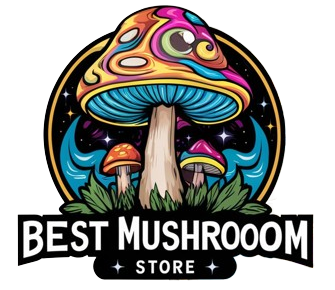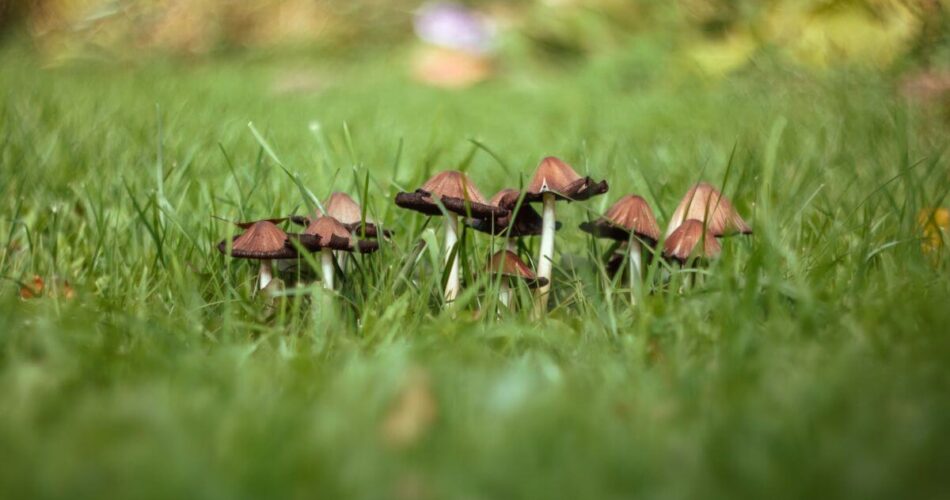There are many different species of magic mushrooms, and they can produce very different effects. Panaeolus Cinctulus, known as banden mottlegill, weed Panaeolus or subbs is a widely spread psilocybin mushroom. Here’s more about banden mottlegill, also known as weed Panaeolus.
What Is Panaeolus Cinctulus?
Panaeolus cinctulus is a type of mushroom that contains the psychoactive compound psilocybin. This means that the mushroom can cause hallucinations if eaten. This mushroom is also known as weed Panaeolus because they used to grow abundantly near edible Agaricus bisporus (white mushrooms) and the farmes had to weed them out. Panaeolus cinctulus is not considered to be a choice edible mushroom, as it can cause gastrointestinal distress. It is considered one of the most popular psilocybin mushrooms in California.
What Are Psilocybin Mushrooms?
Psilocybin mushrooms, also known as “magic mushrooms”, are a type of mushroom that contain the psychedelic drug psilocybin. They change and enhance perception, emotions, and thoughts in a variety of ways. The psilocybin in magic mushrooms has mind-altering effects similar to those of LSD. There are many types of magic mushrooms, and they all have different levels of potency. Some types have very low levels of psilocybin and psilocin, while others have high levels that can lead to a very intense trip. Psilocybin is a hallucinogen that may be made synthetically or extracted from particular types of fresh or dried mushrooms.
Panaeolus Cinctulus Appearance
The cap is cinnamon-brown and cream, hemispherical or convex when young. It becomes umbonate or plane with time. The cap is 1.5-5.5 cm. The gills are cream-colored and blackish when they’re fully mature. They are close and adnate. The color of the spore print can be described as jet black and the spores are smooth. The stripe is 2-9 mm thick and can be as long as 2 to 10 cm. It can be tapered by the ends or even. The color is usually reddish brown, but can be somehow white.
Characteristic Features
Stem base or mycelium can be blue occasionally. It has a characteristic dark band on the cap. Their taste and smell can be compared to flour when the mushroom is fresh. Dried shroom can be salty in taste.
Habitat and Distribution
Panaeolus cinctulus grows mainly in fields and meadows, but can also be found on lawns, in parks, and on other public land. It is usually found in spring and fall seasons, abundantly after rain. Panaeolus cinctulus has been reported to grow in the United States, Canada, Mexico, Europe, Asia, Africa, and Australia. It is commonly found in Oregon, Washington and Alaska, although it can be found in all 50 states. In Europe, it can be found in Belgium, Czech Republic, France, Germany, Great Britain, Estonia, Ireland, Italy and even Iceland.
What Are the Effects of Panaeolus Cinctulus?
Effects of hallucinogenic mushrooms begin after about 30 to 45 minutes; peak about 2 to 3 hours after ingestion; and last for 4 to 6 hours. However, some people report that the effects last much longer than this.Short-term effects from taking “magic” mushrooms can include:
- euphoria;
- distorted perception (sights, sounds, time, touch);
- anxiety;
- depression;
- sleep problems;
- intense nervousness and paranoia – in rare cases;
- Increased blood pressure or heart rate.
The Effects Can Vary From Person to Person
It is important to note that the experiences after using Panaeolus Cinctulus can vary depending on various factors. The type of mushroom, the environment, the user’s expectations and mood, and the dose all contribute to the effects of a magic mushroom trip. While the experience can be enjoyable, there are also risks involved.
Neurological Effects
Psilocybin works by binding to serotonin receptors in the brain. Serotonin is a neurotransmitter that plays an important role in mood regulation, appetite, sleep, learning, and the cardiovascular system. By binding to serotonin receptors, psilocybin disrupts the actions of serotonin, which accounts for its effects on the body. For example, psilocybin may affect the way information is processed in the brain, which could lead to changes in perception, mood, and cognition.
Is Panaeolus Cinctulus Legal?
The U.S. Drug Enforcement Administration (DEA) classifies “psilocybin mushrooms” as Schedule I drugs, which means they’re considered to have a high potential for abuse and no acceptable medical use. The legal status of magic mushrooms varies from country to country. Currently, Oregon state decriminalized magic mushrooms, and they can be used in therapies. Their potential benefits include treating mental health disorders such as depression, anxiety, and addiction.
Similar Posts:
- Panaeolus Cambodginiensis: Magic Mushrooms Species
- The Properties of Shrooms and Weed: All You Should Know About Magic Mushrooms and Cannabis
- Panaeolus Tropicalis: Potent Tropical Mushrooms
- Panaeolus Fimicola: Uncommon Mushroom Species
- Panaeolus Olivaceus – Characteristics, Identification. Learn About This Fungus Named by F.H. Møller
- What Do Shrooms Do to Your Brain? Magic Mushrooms & How They Affect the Brain
- Panaeolus Cyanescens AKA Copelandia Cyanescens: Magic Mushroom






